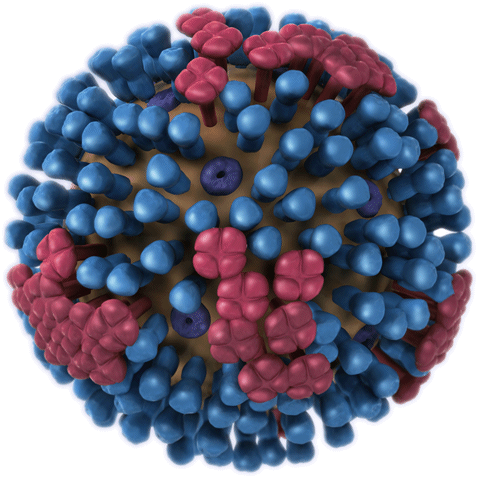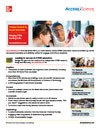The influenza virus may be easier to transmit than previously thought, according to a report in the Proceedings of the National Academy of Sciences (January 2018). It turns out that sneezing and coughing are not required to pass on the influenza virus; simply breathing is sufficient. The important takeaway from this study is that avoiding people who are coughing and sneezing and washing your hands, although helpful, will not completely protect you from getting the flu. See also: Infectious disease; Influenza; Virus

Not breathing the air around us is obviously not an option, and vaccination—again, although helpful—will not always prevent influenza. So what is one to do? A recent study in the journal Scientific Reports (December 2017) suggests that probiotics (beneficial microorganisms)—known as lactic acid bacteria (LAB), commonly found in a variety of fermented vegetables and dairy products—protect against the influenza A virus, at least as observed in mice treated intranasally with heat-killed LAB. Although further research is need to determine whether this holds up for humans, this research demonstrates that heat-killed LAB could potentially be used as a nasal spray to protect against influenza infections. In addition, it also needs to be determined whether heat-killed or live LAB would offer similar protection against the influenza virus in one’s daily diet. Until then, it can’t hurt to add probiotic-rich foods, such as sauerkraut, kimchi, and yogurt, to your diet during flu season, according to study author Sang-Moo Kang, Ph.D. See also: Food fermentation; Probiotics; Vaccination





